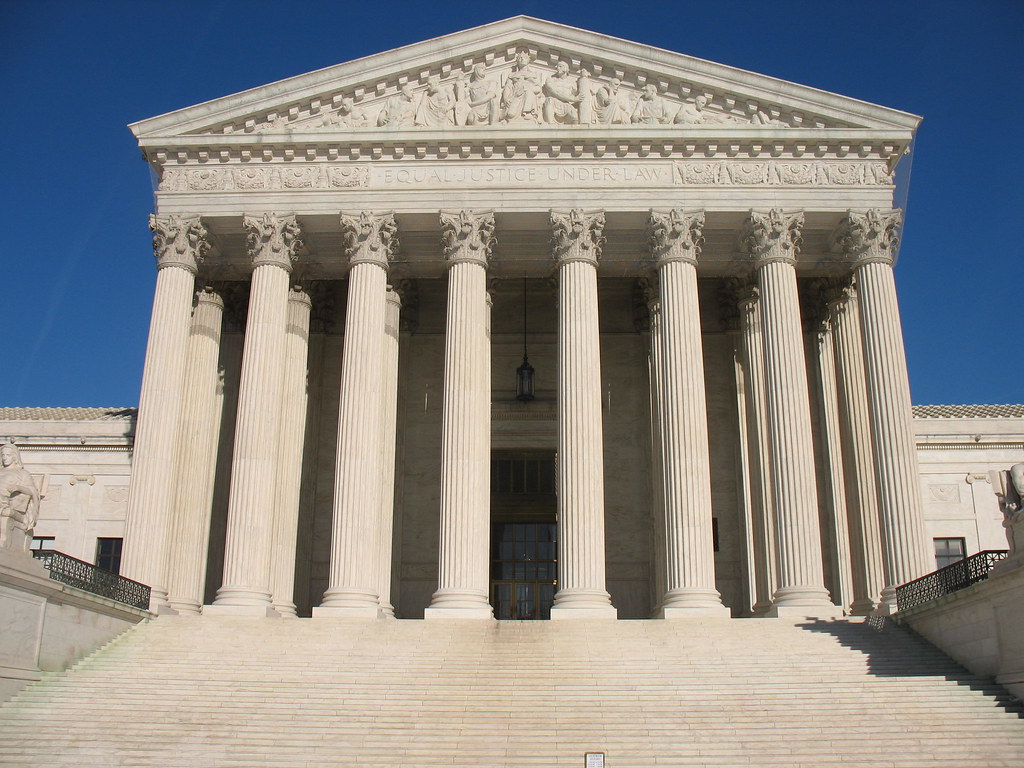US Supreme Court tosses race-based dispute over Louisiana electoral map
In their brief order dismissing the case "as improvidently granted," they justices said that their action will allow the matter to proceed before the New Orleans-based 5th U.S. Circuit Court of Appeals "for review in the ordinary course and in advance of the 2024 congressional elections in Louisiana." Electoral districts in the United States are redrawn each decade to reflect population changes as measured by a national census, last taken in 2020.

- Country:
- United States
The U.S. Supreme Court on Monday dismissed a bid by a senior Republican state official to defend a map of Louisiana congressional districts that had been challenged by Black voters as discriminatory, sending the closely watched legal battle back to a lower court. The justices had taken up the case last year but put it on hold pending their ruling in a similar case from Alabama, which they issued on June 8. The justices dismissed the appeal by Louisiana Secretary of State Kyle Ardoin of a federal judge's decision that the map delineating Louisiana's six U.S. House of Representatives districts drawn by the Republican-led state legislature likely discriminated unlawfully based on race.
U.S. District Judge Shelly Dick last year directed Louisiana's legislature create two, rather than just one, House districts where Black voters represent the majority of voters, a decision that could boost Democratic chances of regaining control next year of the House. In their brief order dismissing the case "as improvidently granted," they justices said that their action will allow the matter to proceed before the New Orleans-based 5th U.S. Circuit Court of Appeals "for review in the ordinary course and in advance of the 2024 congressional elections in Louisiana."
Electoral districts in the United States are redrawn each decade to reflect population changes as measured by a national census, last taken in 2020. In most states, such redistricting is done by the party in power, which can lead to map manipulation for partisan gain. Democrats have accused Republicans of exploiting state legislature majorities to draw electoral maps that dilute the clout of Black and other minority voters. Republicans have said the consideration of race in drawing electoral maps must be limited.
The Louisiana legislature passed the map in February 2022. Democratic Governor Jon Bel Edwards then vetoed it, criticizing the plan for failing to include a second Black-majority district considering that Black voters comprise almost a third of the state's population. The legislature voted to override the veto. The map was challenged by Black voters and civil rights groups in two lawsuits. The plaintiffs said the Republican-drawn unlawfully packed large numbers of Black voters into a single district and dispersed the rest into the five others in numbers too small to enable them to elect their preferred candidates.
One of the lawsuits said the Republican-drawn map "continues the State of Louisiana's long history of maximizing political power for white citizens by disenfranchising and discriminating against Black Louisianans." The plaintiffs in court papers said that "stark racially polarized voting almost universally leads to the electoral defeat of Black-preferred candidates" in Louisiana.
Dick ruled that the way the map was drawn by the Republicans likely violated the Voting Rights Act, which for decades has been used to counter racially biased actions in voting and drawing electoral districts. The U.S. Supreme Court ruled on June 8 in the Alabama case, with two conservative justices joining the three liberals in the majority. They affirmed a lower court's decision that the Republican-drawn map of that state's seven House districts diminished the voting power of Black Alabamians in violation of the Voting Rights Act.
The Supreme Court in that ruling elected not to further roll back protections contained in the Voting Rights Act as it had done in two major decisions in the past decade.
(This story has not been edited by Devdiscourse staff and is auto-generated from a syndicated feed.)










